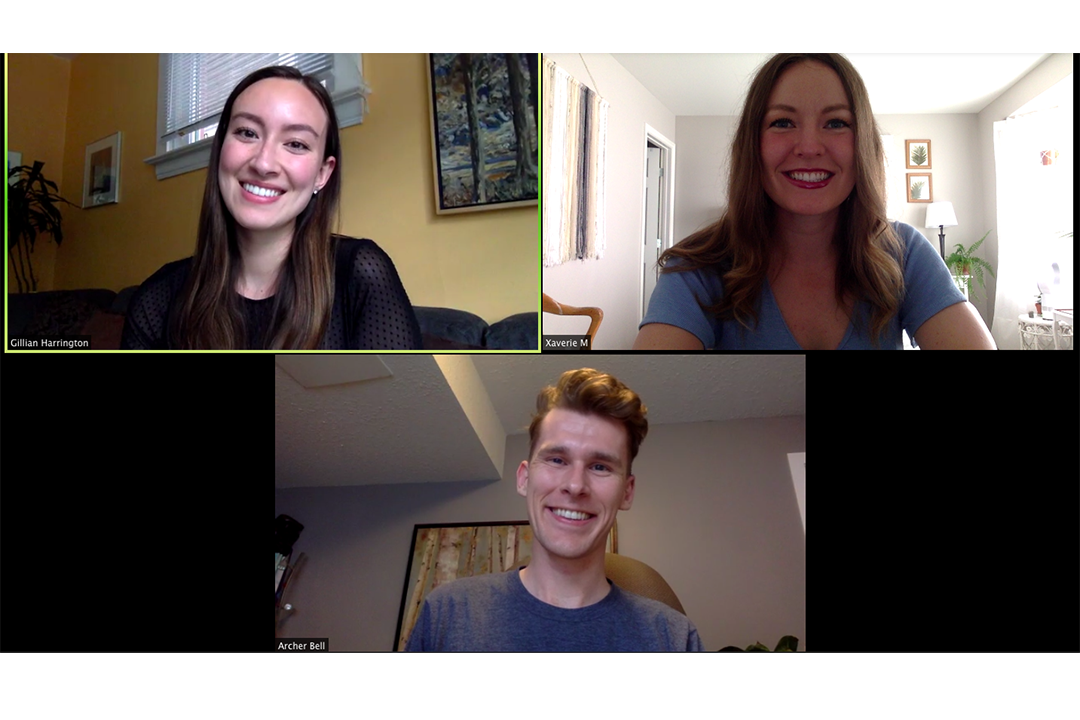
Trio of USask law students takes part in Global Negotiation Conference
The international event, which is usually held in Switzerland, is now being hosted via Zoom from July 21 to 24 and the College of Law team consisting of Xaverie MacLennan, Archer Bell and Gillian Harrington, will be the first Canadian team to participate.
By Sarah Trefiak“This is a wonderful opportunity for our students to experience what it may be like to engage in problem-solving processes on the world stage,” said law professor and coach Michaela Keet. “Now, more than ever, this seems a crucial skillset to build in our current generation of graduates.”
The purpose of the GNC is to promote the interdisciplinary study of practical and theoretical negotiation to students from all over the world. This year’s event features competitors negotiating an international peace treaty for the decade-long conflict in Syria, which has resulted in the displacement of more than 12 million people.
The three Juris Doctor students have been meeting about twice a week since the end of June to prepare. Due to the online nature of the event, training has looked a little different than the moot or negotiation competition preparation law students usually endure.
“We’ve had to address issues in our training that would not typically be discussed for in-person competitions, such as how to deal with technical difficulties, the positioning of the camera during negotiations, the lack of body language, and greater difficulty establishing trust and familiarity,” said Bell.
“Apart from the virtual aspects, another major challenge is the multi-party aspect of the negotiation. This is an entirely new area for us; Archer, Xaverie, and my experiences have primarily been in one-on-one party negotiations,” added Harrington.
Those differences aside, the preparation methods used by the three competitors have remained surprisingly similar.
“We are still reviewing and practicing the same dispute resolution skills, combining study and discussion of theory, strategizing our specific problem, and performing practice negotiations,” explained Bell.
Teams will represent different countries and parties with interests in the region. The USask team has been assigned the role of the European Union—a challenge that they are up for.
“I’m looking forward to working alongside an incredibly diverse group of students from around the world with a range of academic backgrounds,” said MacLennan. “I anticipate that the interdisciplinary approach will help me identify gaps in my understanding of negotiation techniques, and help me uncover and confront internalized biases that diminish my effectiveness as an advocate.”
The four-day event began with a day of training, workshops and special speakers, including professors from European universities, and a former Prime Minister of Ireland. The competition will conclude on Friday after three days of multilateral negotiations with students from around the world.
UPDATE: On Aug. 20, 2020, Harrington, MacLennan and Bell were named "Most Constructive Team" at the Global Negotiation Competition - the highest honour awarded to participants of the event.
"I am thrilled with this amazing news," said Professor Michaela Keet (coach). "What a great example of turning the challenges of the last few months into an opportunity to shine on the world stage."
